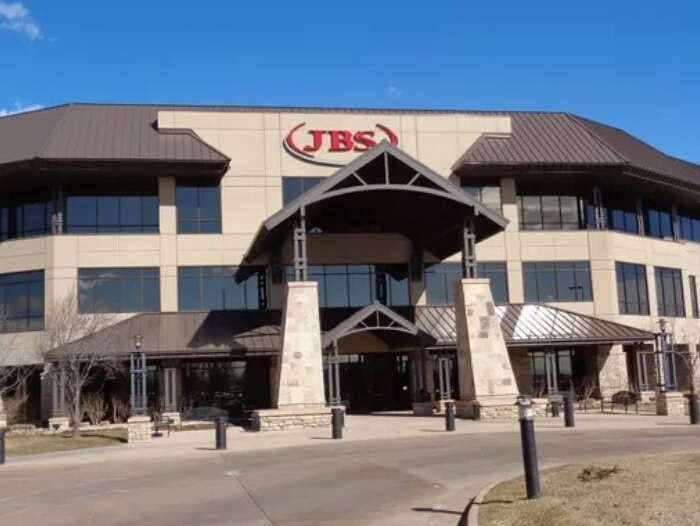JBS Goes Up in CDP Global Sustainability Ranking
December 30, 2022 | 3 min to read

SÃO PAULO — JBS, the world’s largest food company, improved its performance in the CDP 2022 Climate Change Report, the largest and most respected global platform for corporate sustainability information. In this year’s ranking, which has just been released, the institution raised the Company’s score from B to A- in Climate Change, above the average score (C) for food and beverage companies.
“JBS’ good performance in the 2022 Climate Change Report can be attributed to our Net Zero 2040 journey, which has contributed to a better understanding of our indicators and environmental management. We have also expanded the projects linked to the circular economy in our production processes and increased the use of renewable energy sources in our operations,” said Maurício Bauer, director of sustainability at JBS in Brazil.
In this year’s edition, JBS was evaluated on 11 criteria, standing out in themes such as “Energy”, “Business Strategy, Financial Planning and Scenario Analysis” and “Disclosure of Opportunities”. According to CDP’s criteria, the A- score means that the company is implementing the best market practices in the area assessed.
The result of the 2022 Climate Change Report consolidates JBS’ efforts to make its operations even more sustainable throughout all links of its production chains. In 2022, for example, the company launched two new circular economy businesses, Genu-in, which produces collagen peptides and gelatin from bovine skin, and Campo Forte Fertilizantes, which uses organic waste to produce organomineral fertilizers. In addition, JBS Biodiesel opened its third biodiesel plant. The new unit is located in the city of Mafra (SC).
On the clean and renewable energy sources front, Swift has advanced in its plan to have 100% of its stores supplied by solar energy. Another relevant initiative this year was the creation of No Carbon, a company specialized in renting 100% electric trucks. The new company’s vehicles are already being used in the logistical fleets of Seara and Friboi to deliver their products in urban centers.
CDP is internationally renowned for publishing data on companies, cities, states and regions and is supported by around 680 investors with more than US$ 130 trillion in assets. Around 18,700 companies report their results through their platform. Of those, 1.3 thousand are Brazilian. “This evolution shows that we are advancing in a very tangible way in our Net Zero 2040 commitment. We were the first global company in the protein industry to make this commitment and we are advancing on several fronts to reach this goal,” says Maurício Bauer.
About JBS
JBS is the largest food company in the world with a diversified platform in terms of types of products (poultry, pork, beef and lamb, in addition to plant-based), the company has more than 250,000 employees across production units and offices on all continents, in countries such as Brazil, USA, Canada, United Kingdom, Australia, China, among others. JBS is Brazil’s largest employer. Worldwide, JBS offers a broad portfolio of brands recognized for their excellence and innovation: Seara, Swift, Pilgrim’s Pride, Moy Park, Primo, Just Bare, among many others, which get to consumers’ tables every day in 190 countries. The company invests in related businesses, such as leather, biodiesel, collagen, personal care and cleaning, natural casings, solid waste management solutions, recycling, and transportation, with a focus on the circular economy. JBS conducts its operations prioritizing high quality and food safety and adopts best practices in sustainability and animal welfare throughout its value chain, making a commitment in March 2021 to become Net Zero by 2040. This means that JBS will zero the net balance of its greenhouse gas emissions, reducing the intensity of direct and indirect emissions and offsetting the residual. JBS was the first global company in the protein industry to make this commitment, with the purpose of feeding people around the world in an increasingly sustainable way.
